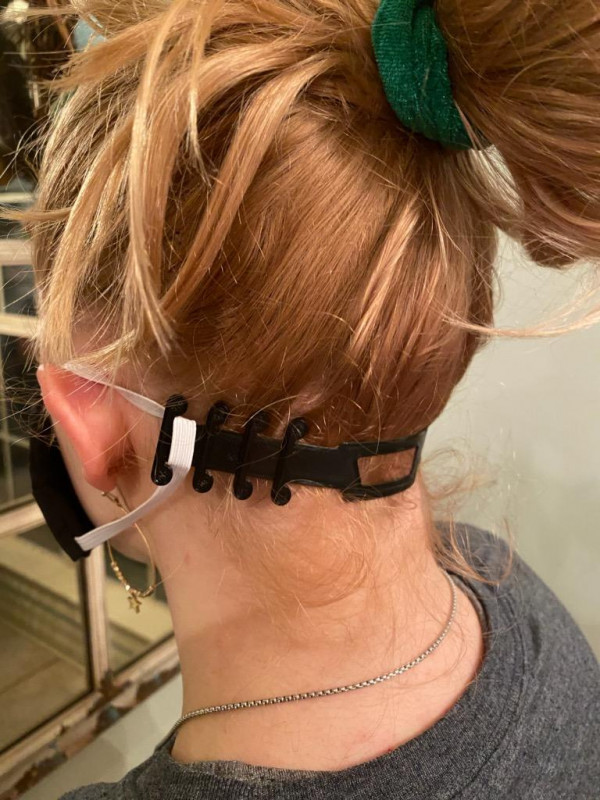Facing the danger from COVID-19

Courtesy photo
Face mask straps like the one shown in the above photograph are being created on a 3D printer in Ruston and being used to help protect local health care workers.
Audiologist Jerrilyn Frasier of Advanced Audiology in Ruston is all about ear health and functionality.
So when she heard some local health care workers were facing ear problems as a result of wearing protective equipment including face masks for long periods of time, she started thinking proactively.
And with a little help from modern technology — and a 3D printer — she and others have been able to help local health care workers, including North Louisiana Medical Center registered nurse Christie Davis.
“Christie told me a lot of health care workers are having problems because elastic straps used to hold the face masks on faces get stretched from too much use and start rubbing sores onto their ears,” Frasier said.
“And ears can get easily infected, so that’s an even bigger danger than usual in light of the coronavirus outbreak.”
Frasier said Davis told her about seeing online information about people using 3D printers to create straps to hold facemasks in place.
“To try and keep everyone safe and social distance, we’ve closed the doors (at Advanced Audiology) except for emergencies like repairs, so I have a little more time on my hands than before,” Frasier said. “So I started looking on Facebook for a 3D printer and found one, and that’s how all of this got started.”
To add a little younger knowhow into the equation, Fraiser brought Louisiana Tech University student Austin Flowers in to help.
“Austin is a doctoral candidate and member of Tech’s Student Audiology Association,” Frasier said. “I met him two or three years ago when he was a student worker shadowing us to make sure he wanted to go for a doctorate in audiology.
“He’s from Dubach and is still around, and I figured he might be knowledgeable as far as the technology involved with 3D printing. So we talked quite a bit about exposure, and questioned each other, making sure we were both healthy and safe from the virus. So after we both felt good about that, Austin came in and got the 3D printer up and going, and we were got things going.”
Frasier’s fiancé David Vaughn played a role in the process, too, as a guinea pig of sorts.
“We used (Vaughn) to test the straps and make sure that they were comfortable and not causing any rubbing damage itself,” Frasier said.
Frasier said the straps and clips to adjust sizes are created from PLA filament bought in spools.
“It doesn’t take much filament at all to make a strap,” Frasier said. “Then we just clip them onto a mask that the (health care workers) sterilize and reuse, or they can use a new mask. It’s a very efficient process that doesn’t use much product.”
Frasier said she has donated 50 straps to Northern Louisiana Medical Center and 25-30 to Ruston Rehab and Nursing, along with a few other nearby health care facilities.
“We’re still making more,” Frasier said. “We’re not going to stop until we run out of material to make them with.”
Frasier credits Flowers for taking her idea and making it an important tool to help try and protect health care professionals from COVID-19.
“He’s a rising star in the field, and one day I see home creating an entire new wave and level of hearing aids,” Frasier said of Flowers. “He’s already gotten off to a good start with all of this.”

